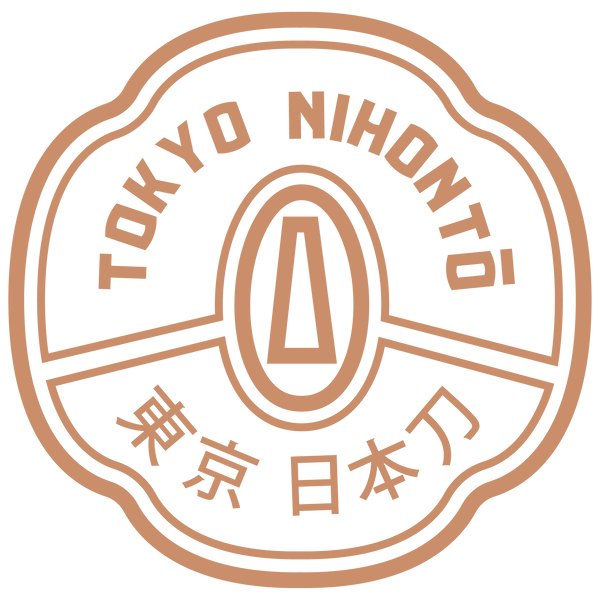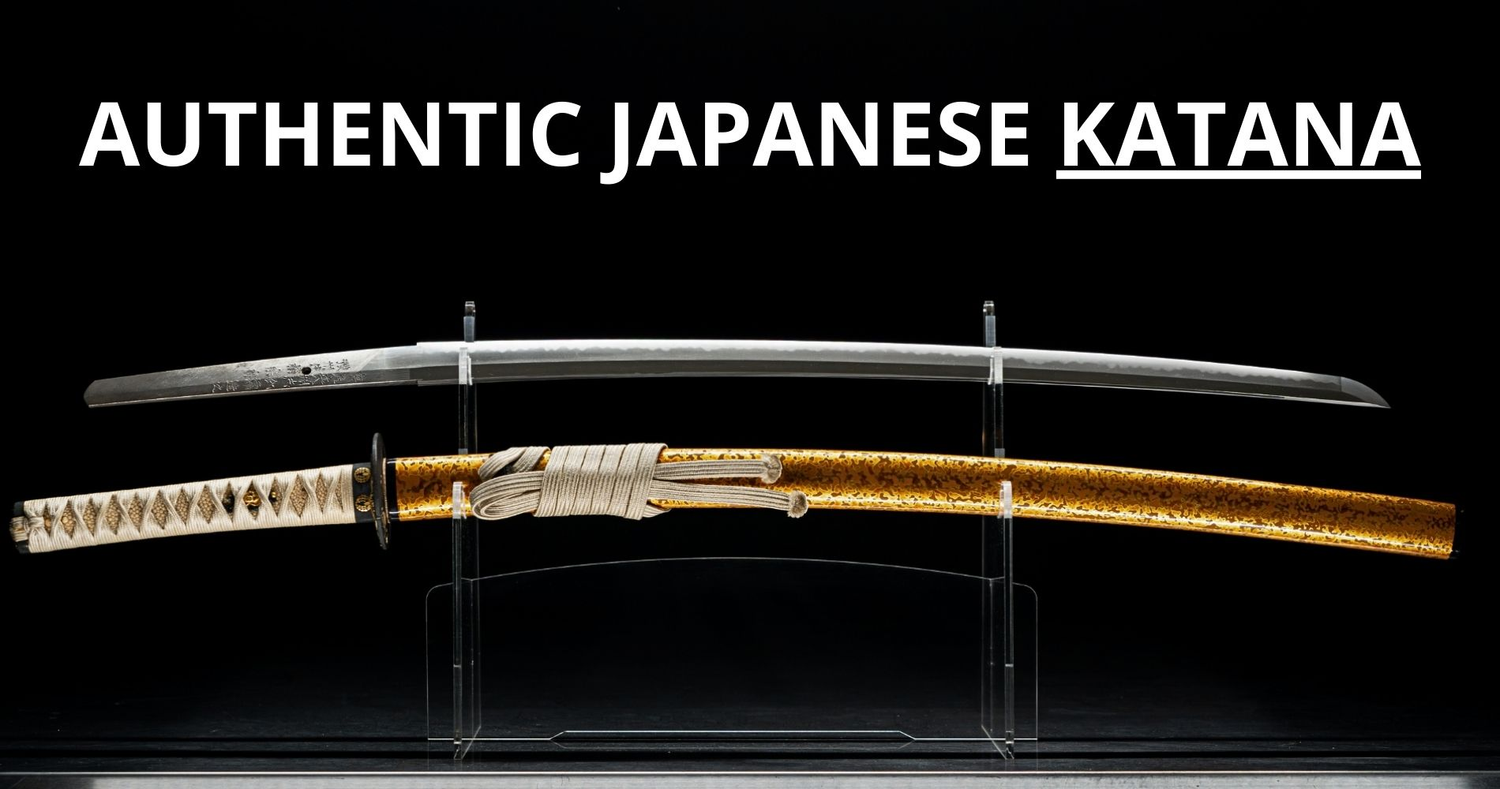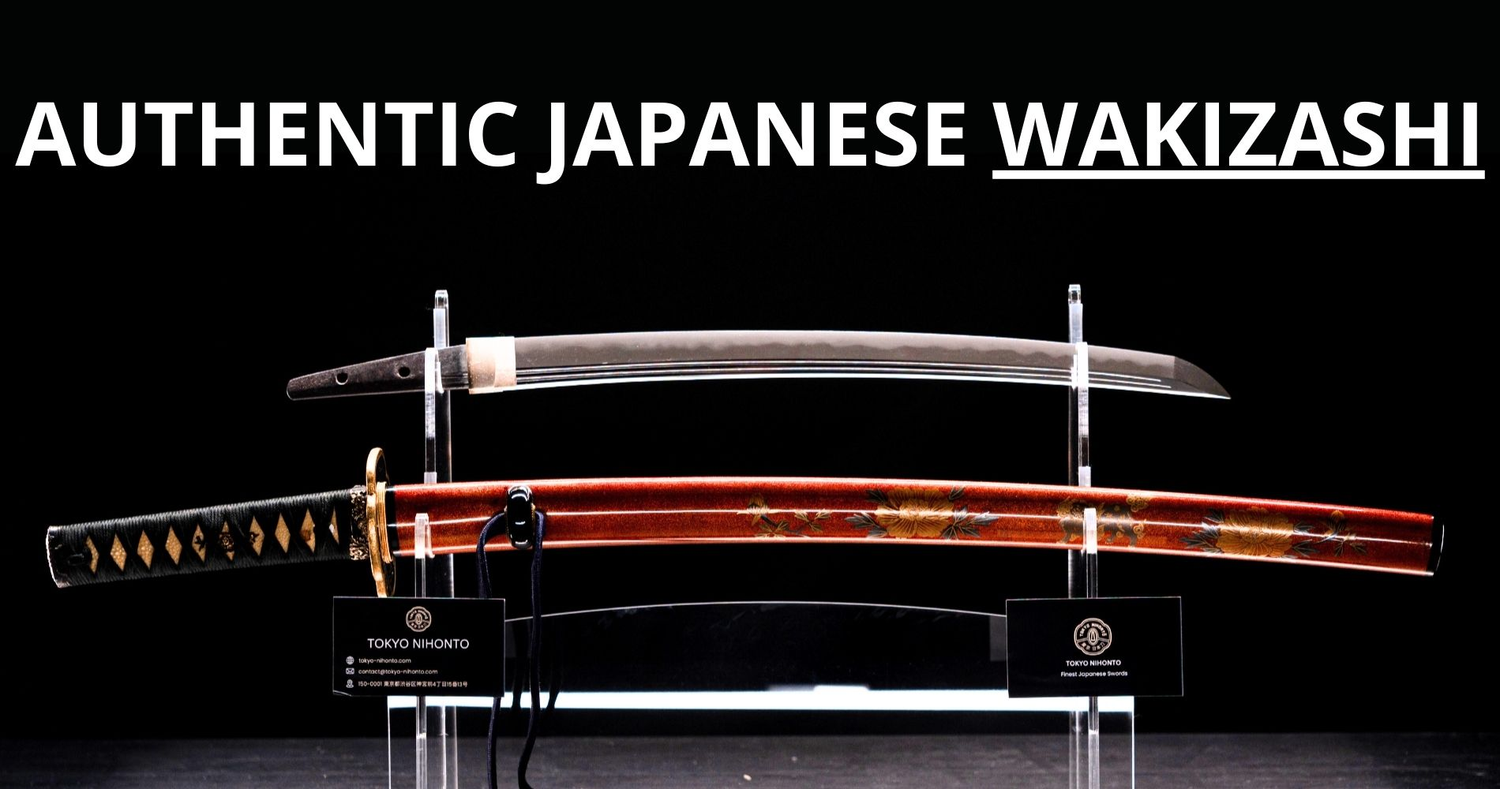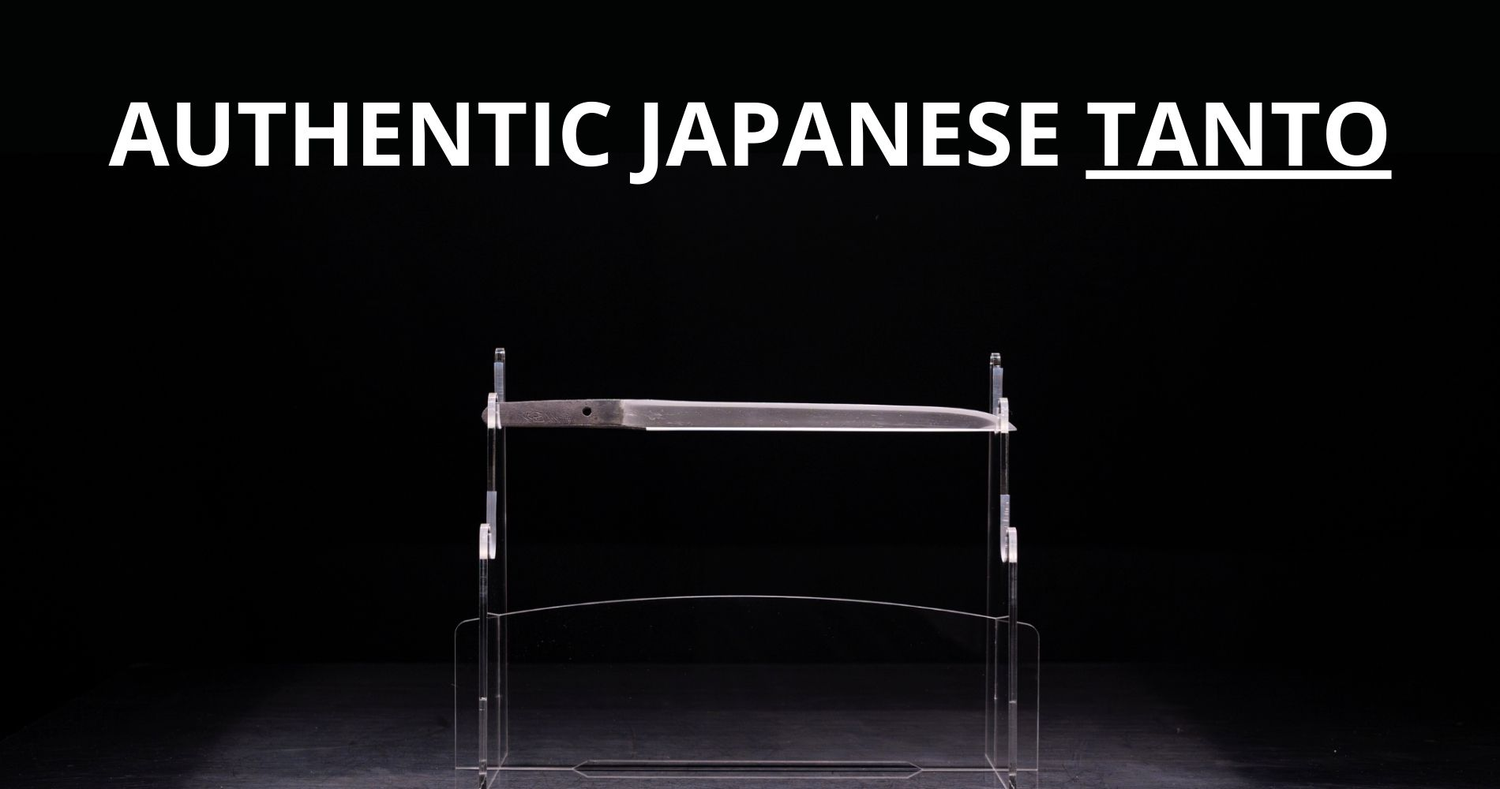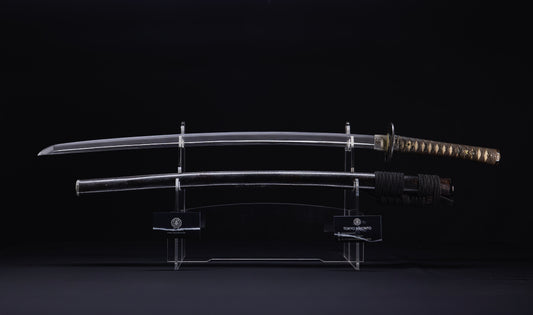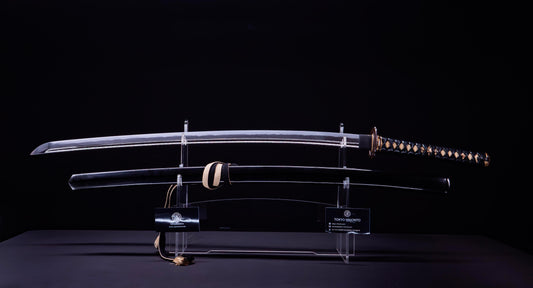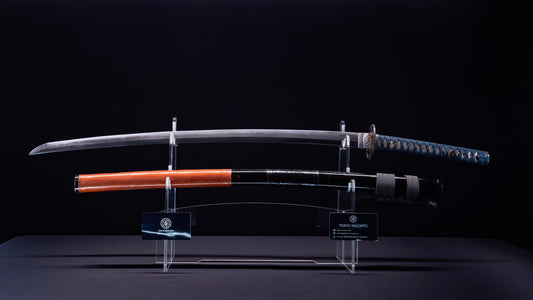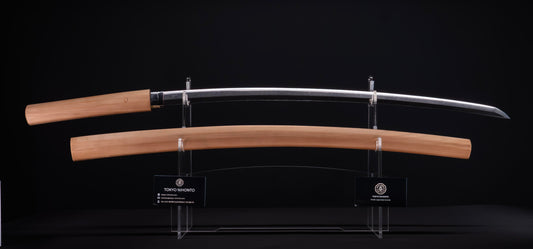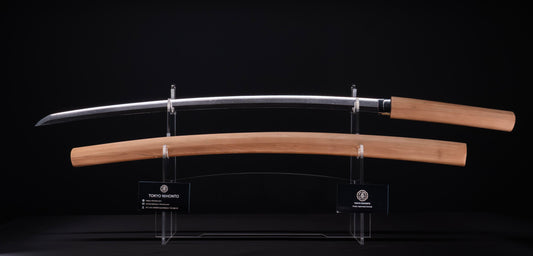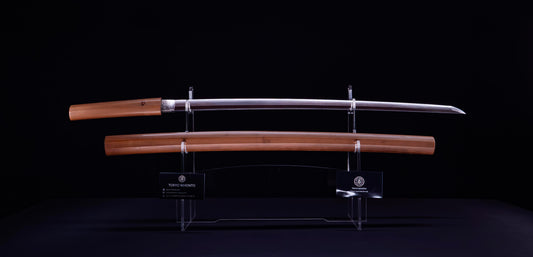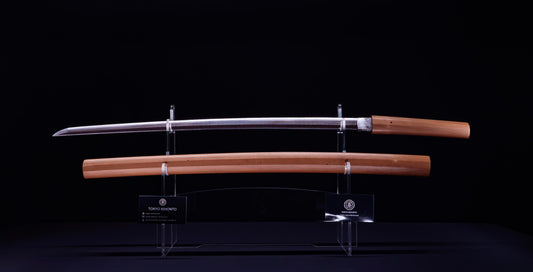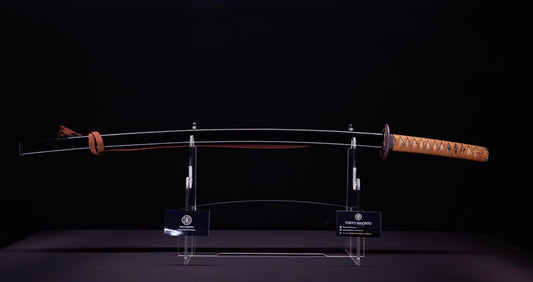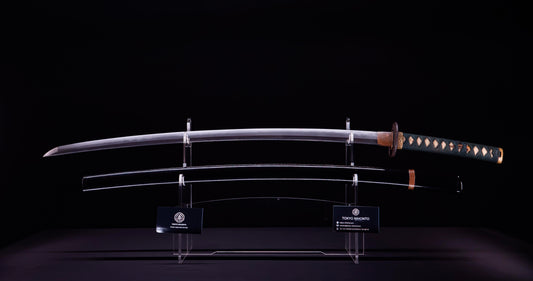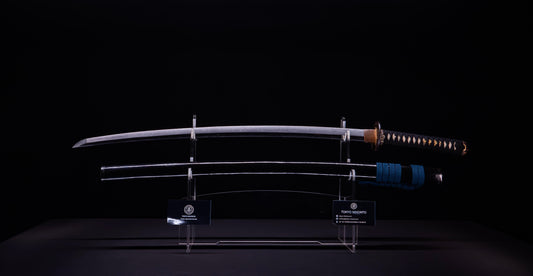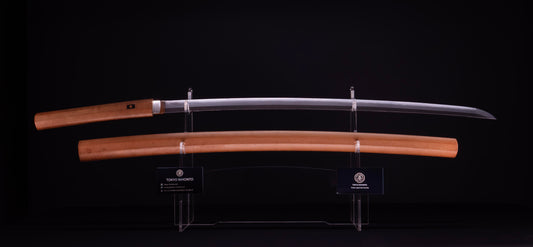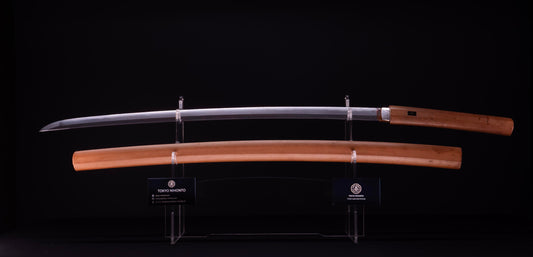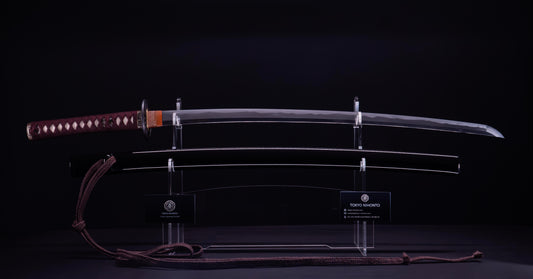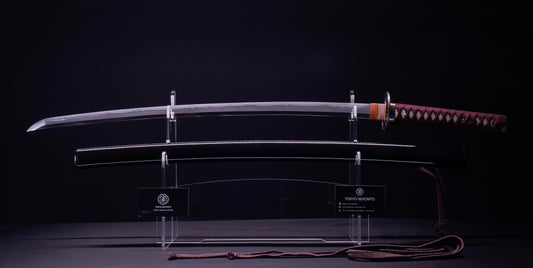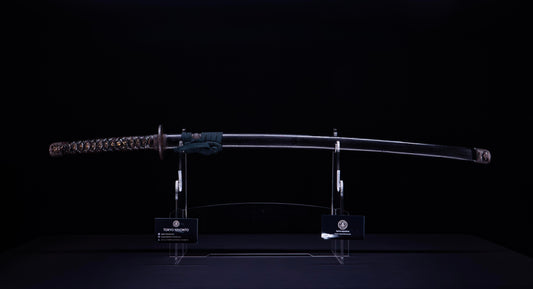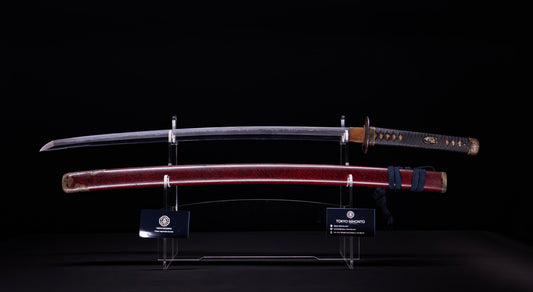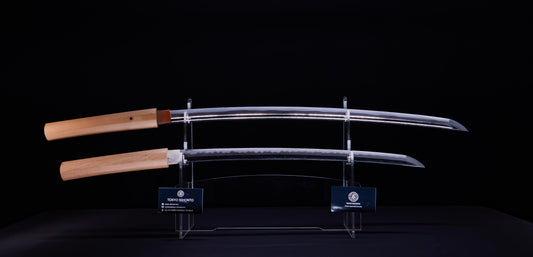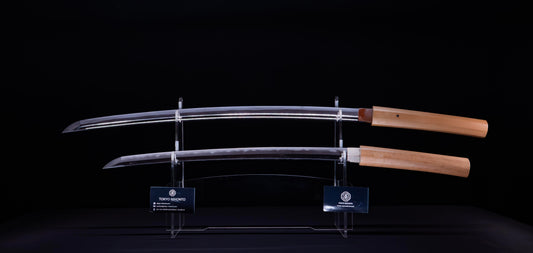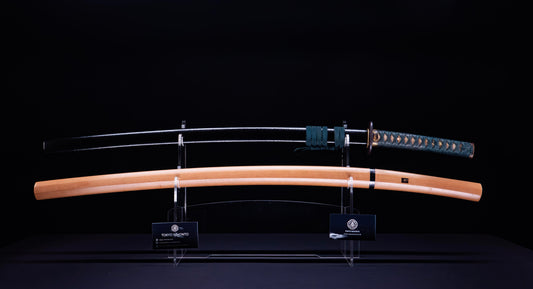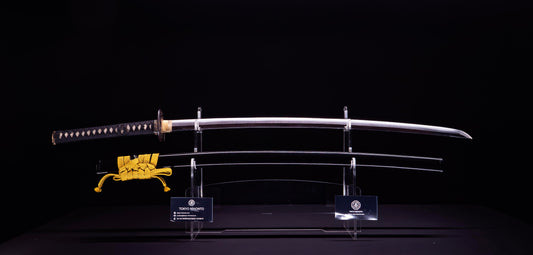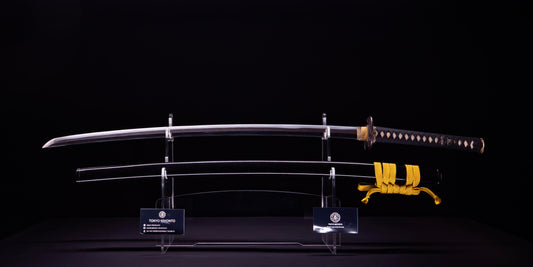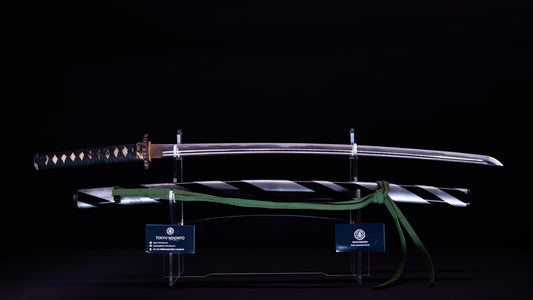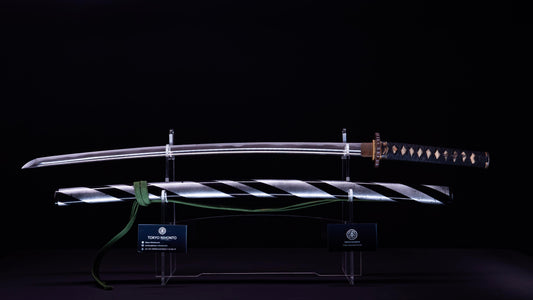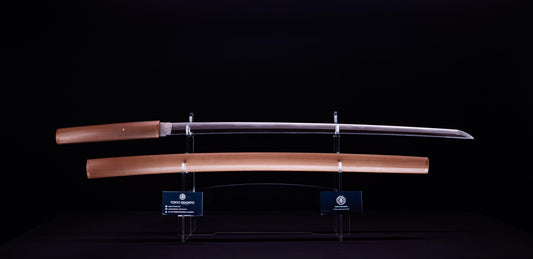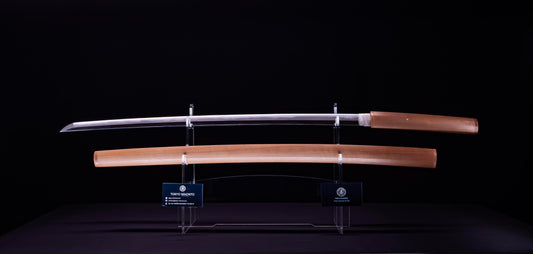-
Antique Japanese Katana Sword - Muromachi Uda School, Double NBTHK Hozon
Vendor:Tokyo NihontoRegular price $6,200.00 USDRegular priceUnit price per -
Antique Japanese Katana Sword, Edo Period with Musha-e Battle Koshirae
Vendor:Tokyo NihontoRegular price $3,400.00 USDRegular priceUnit price per -
Antique Japanese Katana Sword, Late Edo Shishi Koshirae
Vendor:Tokyo NihontoRegular price $3,600.00 USDRegular priceUnit price per -
Antique Japanese Katana Sword signed Osafune Sukesada, Late Muromachi - NBTHK Hozon
Vendor:Tokyo NihontoRegular price $5,700.00 USDRegular priceUnit price per -
Antique Japanese Katana Sword signed Yoshimori
Vendor:Tokyo NihontoRegular price $4,400.00 USDRegular priceUnit price per -
Antique Japanese Katana Sword with Iron Sukashi & Koshirae
Vendor:Tokyo NihontoRegular price $2,600.00 USDRegular priceUnit price per -
Antique Japanese Katana Sword by Uda School (Hozon)
Vendor:Tokyo NihontoRegular price $3,200.00 USDRegular priceUnit price per -
Antique Japanese Katana Sword by Shitahara - NBTHK Hozon
Vendor:Tokyo NihontoRegular price $3,300.00 USDRegular priceUnit price per -
Antique Japanaese Katana Sword signed Omi no Kami Fujiwara Tsuguhiro Katana - NBTHK Hozon
Vendor:Tokyo NihontoRegular price $5,200.00 USDRegular priceUnit price per -
Antique Japanese Katana Sword by Ishido School - NBTHK Hozon
Vendor:Tokyo NihontoSOLDSOLD -
Antique Japanese Katana Sword from Late Muromachi, 66.6 cm
Vendor:Tokyo NihontoSOLDSOLD -
Antique Japanese Katana Sword by Kashu Katsuie (Hozon)
Vendor:Tokyo NihontoSOLDSOLD -
Antique Japanese Katana Sword with Kuruma-sukashi Tsuba
Vendor:Tokyo NihontoSOLDSOLD -
Antique Japanese Katana Sword signed Ienaga Saku - NBTHK Hozon
Vendor:Tokyo NihontoSOLDSOLD -
Antique Japanese Daisho - Takada School - Double HOZON
Vendor:Tokyo NihontoSOLDSOLD -
Antique Japanese Katana Rounded Kakugata Tsuba - Late Muromachi
Vendor:Tokyo NihontoSOLDSOLD -
Antique Japanese Katana Sword signed Iwagami Sadahiro
Vendor:Tokyo NihontoSOLDSOLD
Relive the rich and colorful history of the legendary Samurai warriors of medieval Japan with our authentic Japanese swords. Each piece exalts traditional Japanese swordmaking craftsmanship, which remains second to none, thoughtfully curated and documented for authenticity.
You could be new to Nihonto or a seasoned collector. It doesn’t matter. Our selection of genuine Japanese swords should give you the blade you want.
Japanese Sword History
The Japanese sword isn’t all about metal slashing objects. It chronicles the rich history of a land known for its traditions, beliefs, discipline, loyalty, and relentless pursuit of perfection.
Japanese swords started in 1000 BC during the Yayoi Period, although they hardly resemble the blades we know today. Nearly two millennia later, the Tachi became the grandfather of the modern Japanese sword. It had a curved blade like a katana but longer, perfect for mounted warriors.
From the Kamakura to the Edo Period, the mighty Japanese sword, also known as the Samurai sword, underwent several transformations to become the quintessential sword the world has grown to love and respect.
Types of Japanese Swords
Many Japanese sword types exist, but three are more popular. Each has a specific function, empowering the Samurai in battles.
- Katana – The quintessential Japanese sword, the katana features a razor-sharp-edged curved blade and a long handle for a two-handed grip. It’s the weapon of choice and symbolizes precision and honor.
- Wakizashi – The Samurai’s “sidearm” or secondary weapon, the wakizashi, is shorter than the katana but equally deadly for close combat engagements.
- Tanto – The dagger-like Tanto is a reliable tertiary weapon for piercing, thrusting, and stabbing. It’s the ancient equivalent of a conceal-and-carry weapon.
The Craft Behind the Blade
When you buy Japanese swords online or in a physical store, you’re not only purchasing a legendary weapon. You are also paying for Japan’s history and tradition.
Japanese swordmakers take weeks to forge a sword from only the finest iron sand, fold it multiple times, and subject it to rigorous tempering to create one of the world’s most iconic blades.
Every sword is the work of a skilled craftsperson, from satetsu miners to tamahagane smelters, swordsmiths, polishers, hilt wrappers, and scabbard designers. They work together for weeks to breathe life into a single authentic Samurai sword.
Understanding Japanese Sword Symbolism
Japanese swords are works of art symbolizing a nation’s ideals and traditions. Each weapon has intricate designs, including horimono or engravings of deities, tigers, dragons, and other historically significant figures. These ornaments reflect the swordsmith’s inspirations, while also providing the sword’s cultural context.
How to Buy Authentic Japanese Swords: 4 Tips
Buying original Japanese swords requires understanding several attributes. Here are four tips to help you zero in on a real Samurai sword to bring home.
Check the sword’s documentation.
A legitimate Japanese sword online store or its physical equivalent always includes a Nippon Tokken Hozon Kai (NTHK) or Nihon Bijutsu Tokken Hozon Kyokai (NBTHK) certification with each Japanese sword to prove its authenticity.
Examine the hamon and jihada.
When you buy real Samurai sword, always examine its temperline (hamon) and grain pattern (jihada). Authentic swords feature uniform or straight jihada, while mass-produced replicas don’t. Real Japanese swords also have specks on their temperlines, while imitation swords are unnecessarily smooth.
Assess the tang inscriptions
Traditional Japanese swords have tang inscriptions bearing the swordmaker’s name, period of creation, or both.
Evaluate craftsmanship
Hand-forged Japanese swords take weeks to create. Traditional Japanese swordsmiths pay close attention to detail to ensure every blade, handle, scabbard, and accessory is a work of art.
Our collection of authentic Japanese swords is a testament to Japan’s colorful Samurai warrior heritage. You buy not only a legendary weapon but a cultural and historic symbol.
